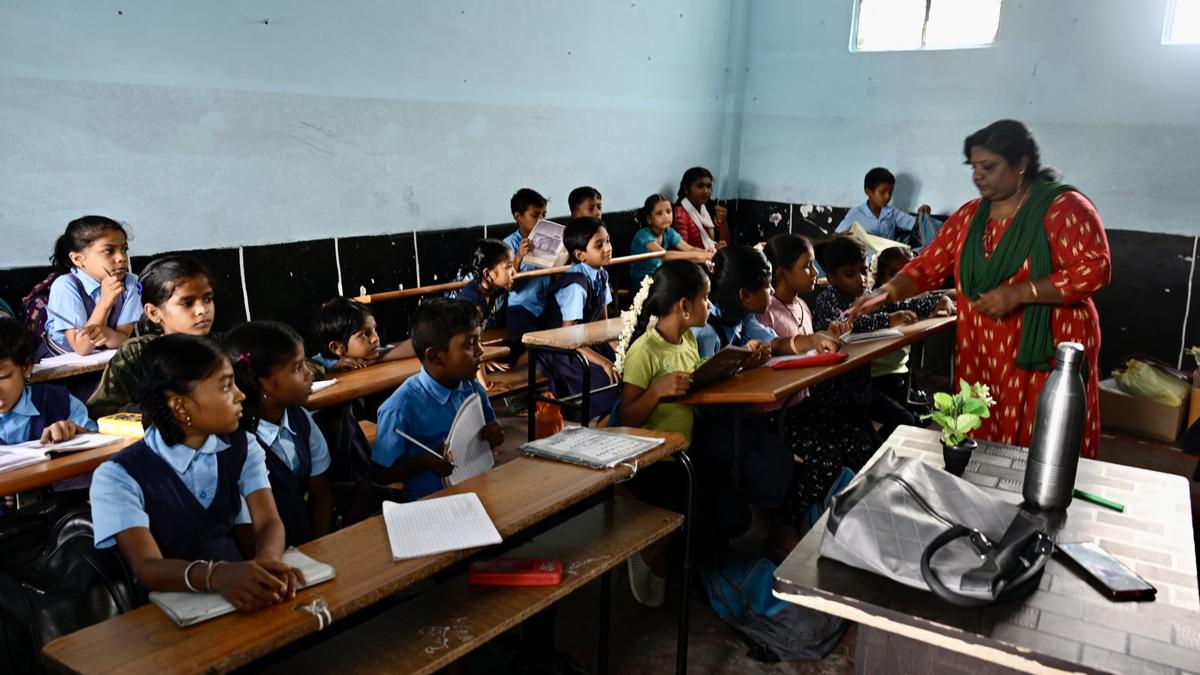
Guest teachers in government schools yet to be appointed
The Hindu
The state government has yet to appoint guest teachers for over 50,000 vacant positions in primary and high schools.
Though the new academic year has just commenced, the State government has not appointed guest teachers to fill vacancies in government primary and high schools.
There are 47,272 government schools in the State with 1,79,784 teachers. Sources say around 50,000 teachers’ posts in primary schools and 10,000 in high schools are vacant, and guest teachers are recruited for these vacancies.
In 2023-24, the DSEL appointed about 33,000 guest teachers by May, who began work at the beginning of the academic year. However, guest teachers have not been appointed this year.
Thousands of schools have just one teacher, and many schools with 50 to 60 students have only two or three teachers. So, guest teachers are the mainstay in such schools.
Officials said the department has submitted a proposal for the appointment of 51,000 guest teachers, and it’s pending approval from the Finance Department.
DSEL sources said guest teachers haven’t been appointed because of the poll-related model code of conduct. “Once the election process is over, the department will recruit guest teachers,” said an official.
“Even after the poll process is over, it will take about one or two months to issue an order, invite applications, and fill the posts. Until then, permanent teachers will be deputed to schools where there is a shortage,” said the headmaster of a government high school in Bengaluru.

“Writing, in general, is a very solitary process,” says Yauvanika Chopra, Associate Director at The New India Foundation (NIF), which, earlier this year, announced the 12th edition of its NIF Book Fellowships for research and scholarship about Indian history after Independence. While authors, in general, are built for it, it can still get very lonely, says Chopra, pointing out that the fellowship’s community support is as valuable as the monetary benefits it offers. “There is a solid community of NIF fellows, trustees, language experts, jury members, all of whom are incredibly competent,” she says. “They really help make authors feel supported from manuscript to publication, so you never feel like you’re struggling through isolation.”

Several principals of government and private schools in Delhi on Tuesday said the Directorate of Education (DoE) circular from a day earlier, directing schools to conduct classes in ‘hybrid’ mode, had caused confusion regarding day-to-day operations as they did not know how many students would return to school from Wednesday and how would teachers instruct in two modes — online and in person — at once. The DoE circular on Monday had also stated that the option to “exercise online mode of education, wherever available, shall vest with the students and their guardians”. Several schoolteachers also expressed confusion regarding the DoE order. A government schoolteacher said he was unsure of how to cope with the resumption of physical classes, given that the order directing government offices to ensure that 50% of the employees work from home is still in place. On Monday, the Commission for Air Quality Management in the National Capital Region and Adjoining Areas (CAQM) had, on the orders of the Supreme Court, directed schools in Delhi-NCR to shift classes to the hybrid mode, following which the DoE had issued the circular. The court had urged the Centre’s pollution watchdog to consider restarting physical classes due to many students missing out on the mid-day meals and lacking the necessary means to attend classes online. The CAQM had, on November 20, asked schools in Delhi-NCR to shift to the online mode of teaching.









